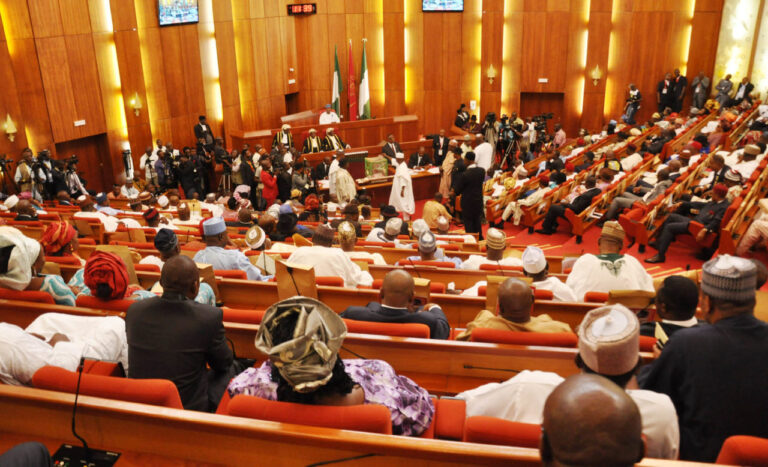In a significant legislative move, the Nigerian Senate has finalized a bill that cedes control of lands with gold reserves to the Federal Government (FG). The bill, which has stirred substantial debate among lawmakers, state governments, and local communities, aims to centralize the management and exploitation of the nation’s gold resources.
The legislation, officially titled the “Gold Resource Control Bill,” was passed after several months of deliberations. Proponents of the bill argue that centralizing control will enhance the efficient management of gold resources, boost revenue for the federal government, and curb illegal mining activities that have plagued the sector for years.
Senator Ahmed Lawan, the Senate President, hailed the bill’s passage as a landmark achievement. “This bill represents a critical step towards harnessing our mineral resources for the benefit of all Nigerians. It ensures that gold mining activities are conducted in a regulated manner, providing transparency and accountability,” Lawan stated.
Opponents of the bill, however, expressed concerns over the centralization of control. They argue that it could lead to the marginalization of states and local communities that host these resources. Senator Enyinnaya Abaribe, a vocal critic, warned that the bill could ignite tensions between the federal and state governments. “This legislation disregards the rights and interests of the states where these gold reserves are located. It undermines federalism and could have far-reaching negative consequences,” Abaribe cautioned.
The bill stipulates that all land with gold reserves will now be under the jurisdiction of the Federal Government, which will oversee exploration, mining, and commercialization. The Federal Ministry of Mines and Steel Development is tasked with implementing the provisions of the bill, ensuring that all mining activities are compliant with national standards and regulations.
In addition to regulatory oversight, the bill outlines a revenue-sharing formula. A significant portion of the proceeds from gold mining will go to the federal government, while a percentage will be allocated to the states and local communities to support developmental projects and mitigate environmental impacts.
The passage of the Gold Resource Control Bill is expected to have a profound impact on Nigeria’s mining sector. It opens up opportunities for increased foreign investment and collaboration with international mining companies. However, it also poses challenges related to the effective management of resources and equitable distribution of benefits.
As the bill awaits presidential assent, stakeholders from various sectors are gearing up for the changes it will bring. The Nigerian Extractive Industries Transparency Initiative (NEITI) has called for robust monitoring mechanisms to ensure that the implementation of the bill promotes transparency and accountability.
The finalization of this bill marks a new chapter in Nigeria’s quest to harness its abundant mineral resources. While it promises economic benefits, the success of the legislation will largely depend on how well it balances the interests of the federal government, states, and local communities.
Do you have a story to share? Want to advertise with us? Or perhaps you need publicity for a product, service, or event?
Contact us:WhatsApp: +2348165713606 Email: nationalreports001@gmail.com
We'd love to hear from you!"





